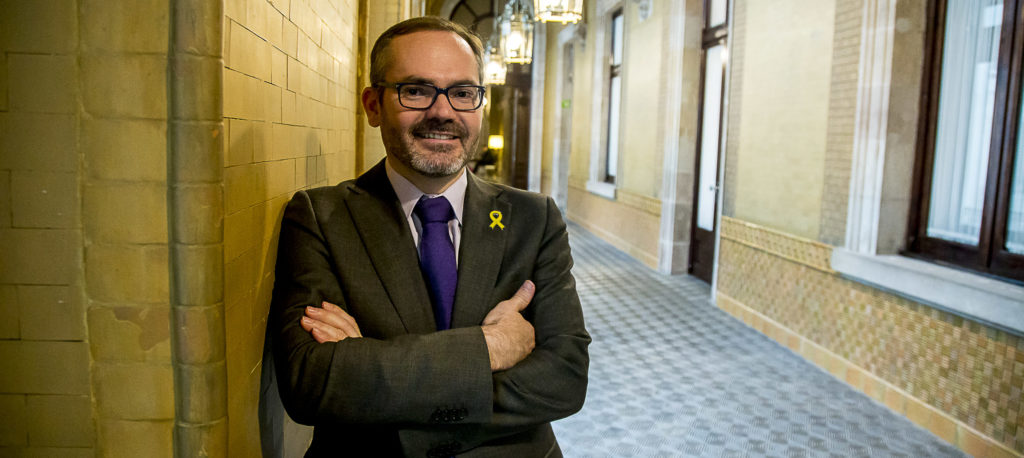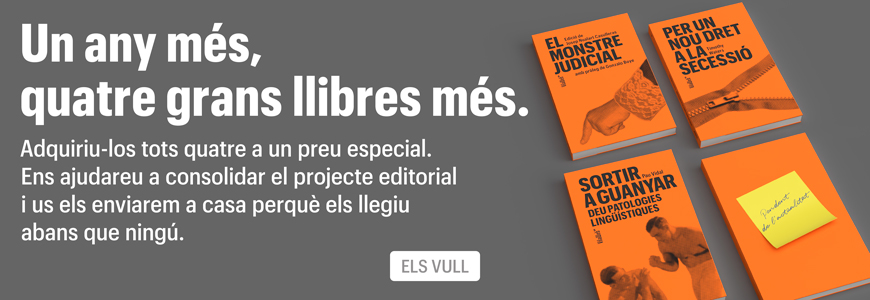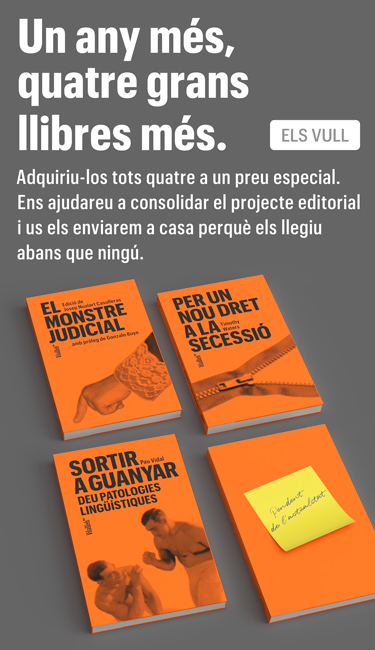10.11.2018 - 07:05
Josep Costa (1976) is the current First Vice-President of the Parliament of Catalonia. Born in Ibiza, he has an academic background. He was an associate professor of Political Science at Universitat Pompeu Fabra (UPF) and is the author of Secessió o secessió [Secession or Secession]. A lifelong supporter of independence, he was a member of the Bloc d’Estudiants Independentistes (BEI) alongside the former ERC minister, Carles Mundó, and Junqueras’ lawyer, Andreu Van den Eyne. Costa is currently a Junts per Catalunya [Together for Catalonia] MP. In this interview, which took place at his office, Costa speaks of the loss of a pro-independence majority in parliament due to Judge Llarena’s actions, and the possible future scenarios.
-How are you coping with the loss of a pro-independence majority in parliament? Do you see it as a lost cause?
-No. We don’t see it as a lost cause.
-But how can the MPs who were suspended in the plenary recover their right to vote? Will they be able to vote one day? And how?
-Junts per Catalunya doesn’t have a large enough majority to overturn the Parliamentary Bureau’s decision, which is what we’d like. But we’ve been lodging appeals against the Supreme Court’s ruling on the suspensions. We’re also fighting for the release of MPs who have been incarcerated or forced into exile and to have all the charges against them dropped, especially those relating to rebellion. It’s a temporary situation and any of these three approaches might lead to them being able to immediately vote again.
– What are the potential political consequences of the loss of the majority?
– It may well have robbed us of the necessary votes to pass certain political resolutions, certain laws, certain motions, or decisions that are taken by parliaments. It’s true. But quite probably in 90% of the cases, although we could have passed them, they would have been challenged, suspended or had no effect, anyway. This is true whether we have a majority or not. It is only one aspect of the exceptional circumstances parliament finds itself in. It’s not the most important problem facing parliament.
– What is the most important problem facing parliament, then?
– The fact that we have MPs who are in prison and in exile. It’s not simply about whether their votes happen to count or not. While there are prisoners and exiles, nothing is normal.
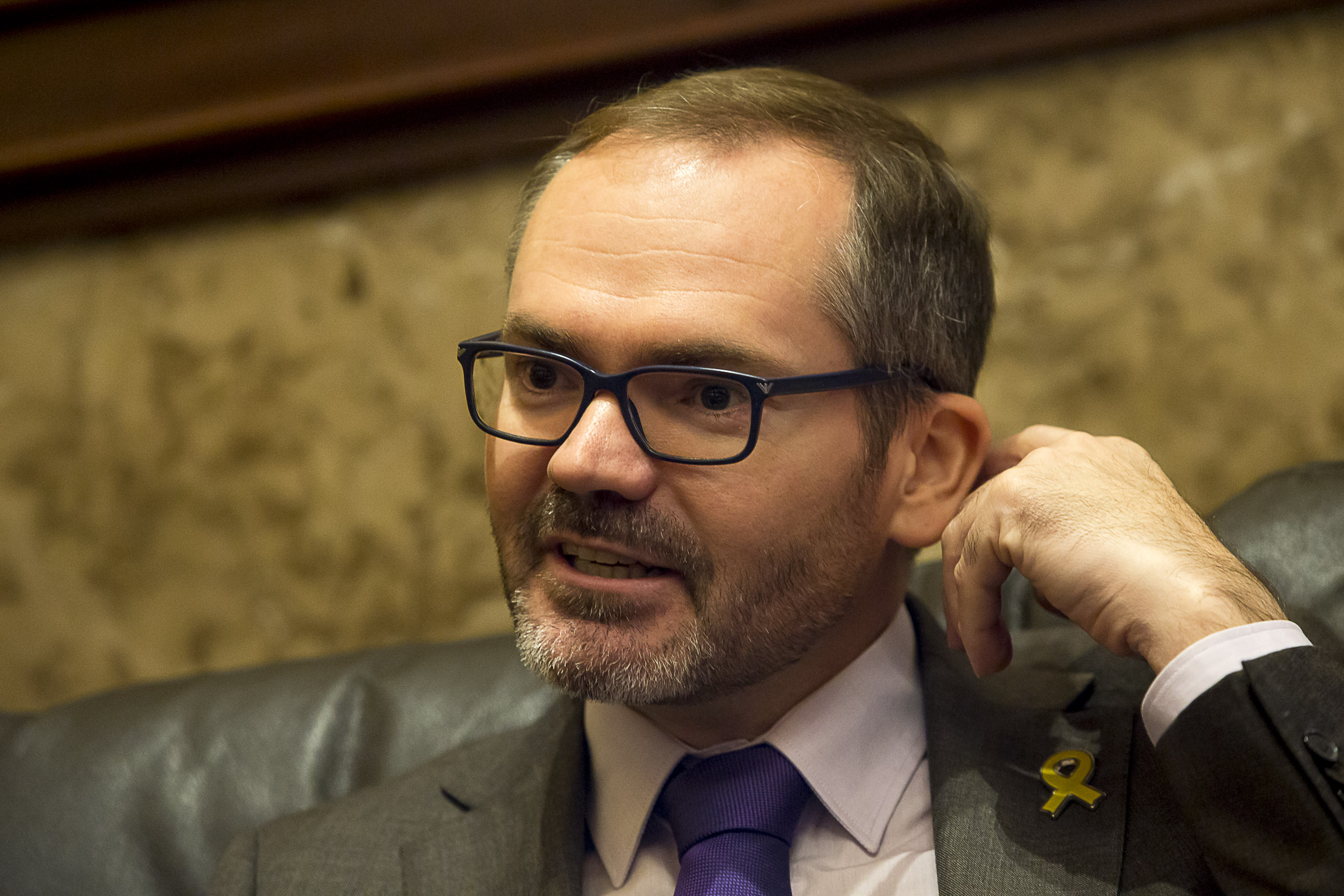
– Let’s have a count of the casualties, please. Which MPs have been lost since the elections on December 21 last year?
-We did just that the other day. An elected MP who’s resigned their seat, Carles Mundó. Seven MPs who had to resign their seats (five women and two men). Of the current MPs, at present five are in jail, two in exile and four more are facing charges. In total, that’s nineteen people. 15% of parliament. And if you take it as a percentage of the seventy pro-independence MPs, that’s nearly 30%: 27% of pro-independence MPs have been affected by political repression.
-That’s quite something. Why not shut down parliament?
-Parliament is legally closed because the results of the 21-D elections haven’t been officially recognized.
– What do you mean by ‘legally closed’?
– Taken over. What the people voted for isn’t allowed to be expressed politically.
– Once more: have you ever considered shutting down parliament, as a result of Llarena’s blockade?
– Shut it down, no, but in some of the toughest moments, for example when Jordi Turull, a candidate for the presidency, and former president Carme Forcadell were sent to jail, we considered every option. We asked ourselves if there was any point in continuing with parliamentary business under such circumstances. When they used the courts to abort the third attempt at an investiture, when they kidnapped six other MPs … it’s a disaster. I don’t know if it’s happened anywhere else, that a democratically elected parliament has been hijacked by the courts.
– Have you received gestures of solidarity from other European parliaments?
– We’ve been visited by Belgian and British PMs, and a Finnish lawmaker. The truth is that people know that President Puigdemont is in exile and that there are MPs in jail, but very few are aware of the repression suffered by parliament. Recently, a delegation was accompanied by a person who’d written a book about Catalonia and they told me, all surprised: “Even me, someone who’s written a book about Catalonia, wasn’t aware that this had happened to parliament.” That’s when we realised we had to tell more people what was going on. And that’s what we’ve started to do. Especially in other parliaments. We need to explain ourselves more.
– Will you be able to approve the budget?
– It’s perfectly viable because the numbers haven’t changed.
– How come?
– If the CUP says they won’t participate in passing the budget, we’ll need the support of another group. And, leaving aside the PP, the other groups have enough votes to approve it. And I think the Comuns are the only ones who might go ahead and vote for the budget whatever happens with the votes that have been hijacked. But it’s a very complicated year.
– Why is it so?
-Because it’s election year. On the other hand, it’s true that the Comuns have stated that they want to vote on the parliamentary budget together with the budgets of Barcelona Council and other cities, since they don’t have a majority there, either. This is the only way out I can see. Because in Spain, in Madrid, there’s no real hope of achieving stability, given the situation we’re in. I can only see the budget as being viable with the Comuns. They haven’t ruled it out, in fact.
– Will the Council for the Republic take over the parliament’s job? Is it a threat?
– No. The threat is the power of the Spanish state, which doesn’t let us do our work. The Council for the Republic is a badly-needed organisation, especially when it comes to exercising a representation that is currently blocked in parliament. President Puigdemont will preside over the Council for the Republic when he ought to be presiding over the Catalan government at parliament’s bidding.
– It was an attempt to use the law to gain independence from the law. Parliament’s role was highly significant. Do you still think it’s the way ahead? Or will it be done differently?
-Speaking in the abstract: I don’t know the exact proportion, but a majority of the declarations of independence which have existed worldwide have occurred in territories without parliaments. Therefore, from a theoretical standpoint, having a parliament isn’t essential for an independence process to exist. Having said that, we have a parliament which represents the people of Catalonia. And in the most recent elections we had a higher share of the vote than ever. We have to preserve and reclaim it. Not so much because of whether they let us vote or not, since we already know that parliament has been taken over, but rather to uphold the democratic expression of this majority.
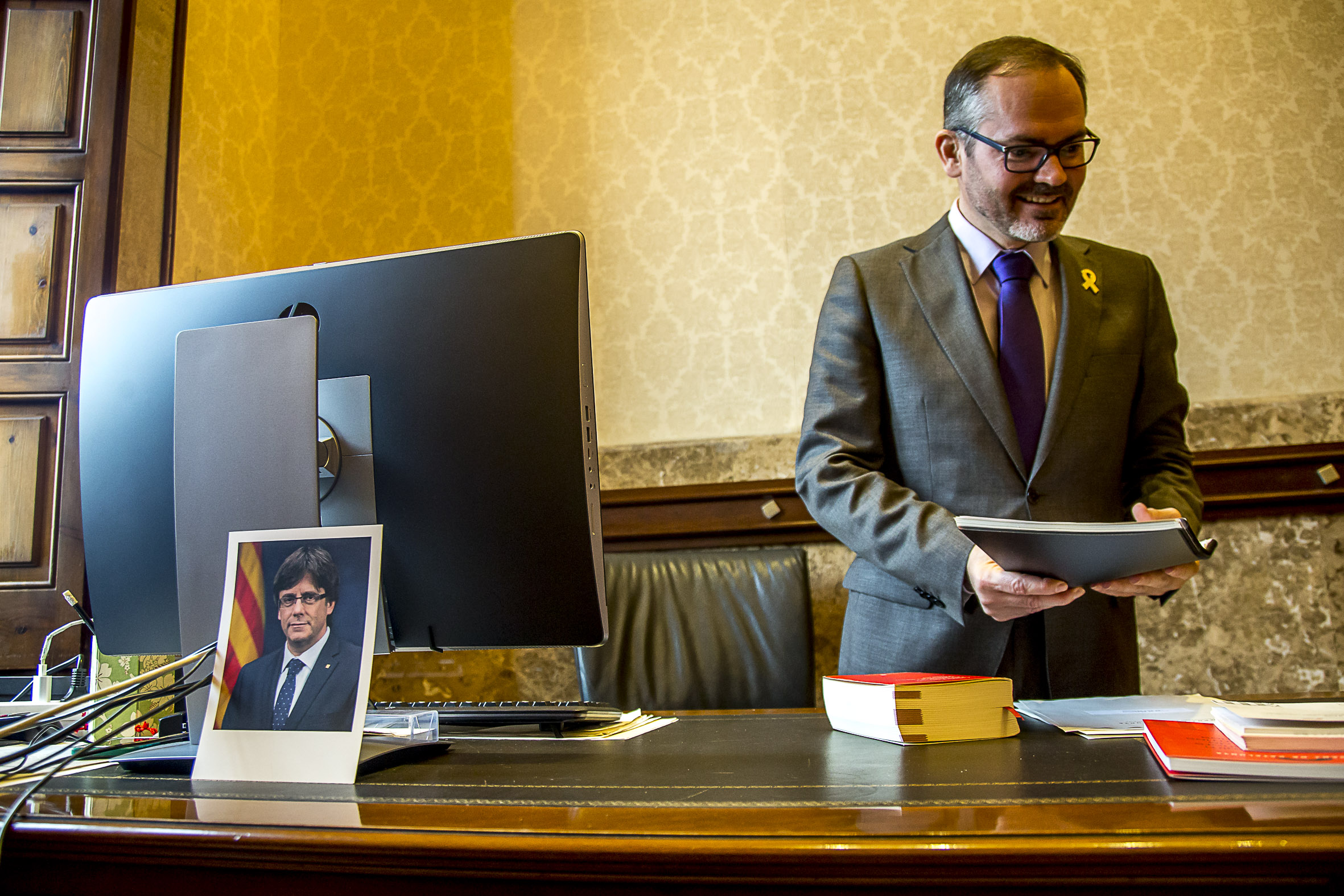
– Civil disobedience. More and more people see it as an option. Even a former vice president of the government, Carod-Rovira. How about you?
– I’ve spoken and written about civil disobedience. And I’ve lectured about in class. According to the great theorist John Rawls, civil disobedience is a means to change the system in “pseudo-just” societies, as he calls them. Democratic societies but with a system which has room for improvement. Luther King did this. He made them arrest him, thus undermining their legitimacy. Civil disobedience is an effective, efficient mechanism. Effective and efficient to fight injustices in democratic societies that are not completely just.
– Is it true in our case?
– It is true in our case. Absolutely. There are many things we can do. Everything except accept the situation as normal. Or accept this level of repression without doing anything. Every action aimed at effective communication is a good idea, as far as I’m concerned.
– The theory of fear. How has it affected us? How come it affects everyone from parliament, the CDRs [Committees for the Defence of the Republic] and the media?
– Jordi Cuixart often uses Seneca’s phrase to Nero: ‘If I am not afraid, you have no power.’ Spain’s power resides in its use of fear. In many instances, people don’t break the law because they can’t, but because they are afraid. They’re afraid of traffic fines, for example. Fear is a mechanism of social control par excellence. And I believe that with 1-O the state made a ruthless decision: to use any means necessary. That’s why the worst images were filmed in Puigdemont’s polling station, where CNN was broadcasting live. It’s no accident. You want everyone to see you. You want to spread fear. And lately there’s a new explanation: that same day there were already people within the independence movement who were making comments such as: ‘They’ve gone mad, they want to hurt us. They’ll use extreme violence to deal with the conflict. We need to rethink whether we’re prepared to accept this level of violence.’
– And to this day.
– And to this day, that’s right. I think that now everyone in the independence movement is thinking about the level of repression we can accept, how much we can swallow. Such thoughts have been evolving a great deal since October 1st. What price are we willing to pay for independence in terms of sacrifices and suffering? For a year now, many people have realised that independence has a higher price than they’d thought, but they are also clearer as to its advantages. Independence might cost more, but it’s more necessary and urgent than ever before. Which is why support for independence hasn’t waned.
– What do you mean by that?
– Since the first of October the sacrifices have become more apparent than ever, but so have the benefits. Spain is further away from democratic ideals than we realised. The advantages of having a republic that doesn’t use economic blackmail or discriminate against us are more apparent than ever.
